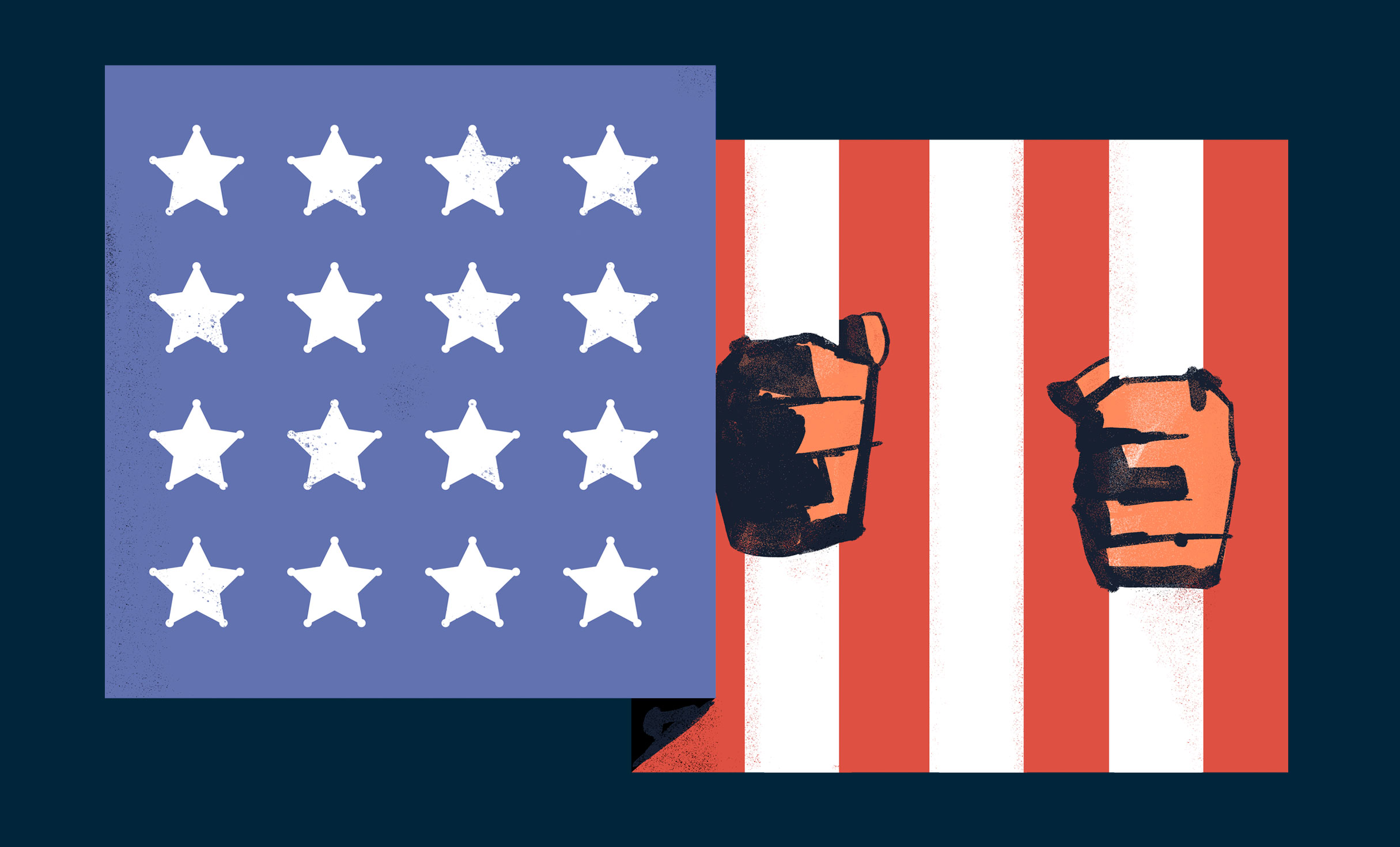Our research into the criminal justice system has exposed America’s elected prosecutors and sheriffs as a study in minority rule. We found that elected sheriffs, who wield enormous power over families facing eviction or ICE investigation, are 98 percent male. As their unchecked authority disproportionately impacts communities of color, we broke the news that over 90 percent of elected sheriffs are white.
Our initial analysis of elected prosecutors revealed an old boys’ club resistant to reform. Yet five years later, we discovered an exciting trend: When women and people of color run against incumbents, they are likely to win. Voters play a critical role in making the criminal justice system more reflective – but only in competitive races. Our data show a majority of incumbents run unopposed.
Confronting the Demographics of Power: America’s Sheriffs
Against the backdrop of the COVID pandemic and increased calls for police accountability, we tapped our data to craft a demographic profile of American sheriffs, who manage county jails and a wide range of law enforcement activities, yet operate with less oversight than local police chiefs or commissioners.
Justice For All? Who Prosecutes in America?
Our 2014 investigation into elected prosecutors revealed such unjust demographics that it sparked a national movement to elect more women and people of color into the role. Would white men keep overpowering the system?
Tipping the Scales: Challengers Take on the Old Boys Club of Elected Prosecutors
In 2019, we took a second look at elected prosecutors. At first, we were dismayed: In five years, the racial demographics of prosecutors had barely budged. But looking closer, we found more women and fewer white men in the role. This report reveals that when women and people of color challenge incumbent prosecutors, they are more likely to win than white men.
Leading the Conversation
National media outlets look to the Campaign and our director, Brenda Choresi Carter, for cutting-edge insights about how race and gender shape our politics and policy. Our focus on the structural changes needed to politically empower women and people of color is shaping a growing movement to defeat white male minority rule and achieve a fully reflective democracy.
… many of us couldn’t name our local prosecutor, and even politically engaged Americans often pay little attention to local elections like those for DAs. But in cases like those surrounding Ahmaud Arbery’s death, we can see just how important they are.
Brenda Choresi Carter
In the Media
… sheriffs are a really unique position within both elected office and the criminal legal system. And in the course of doing our research, we concluded that this is a singularly troubling and problematic position of authority in the United States.
“Do Elected Sheriffs Have Outsized Power In The U.S.?.” NPR
‘Given the large body of research showing that law enforcement policies and practices affect people of color disproportionately and unfairly, a policing system comprised nearly entirely of white men is a system in need of change,’ the report says.
“Elected sheriffs are 90% white men, report says. How does that affect our policing?” Miami Herald
Sixty-six percent of states that elect prosecutors have no blacks in those offices, a new study has found, highlighting the lack of diversity in the ranks of those entrusted to bring criminal charges and negotiate prison sentences.
“A Study Documents the Paucity of Black Elected Prosecutors: Zero in Most States.” New York Times



